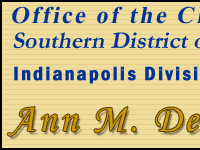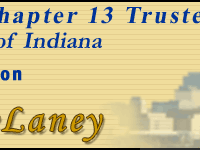|
Bankruptcy Information |
Bankruptcy law is a Federal law. This page gives you some general information about what happens in a bankruptcy case. The information here is not complete. You may need legal advice. |
When you file bankruptcy: |
You can choose the kind of bankruptcy that best meets your needs: |
|
|
|
|
If you have already filed bankruptcy under Chapter 7, you may be able to change your case to another chapter. |
Your bankruptcy may be reported on your credit record for as long as ten (10) years. It can affect your ability to receive credit in the future. |
What is a Bankruptcy Discharge and how does it operate? |
One of the reasons people file bankruptcy is to get a "Discharge". A discharge is a court order which states that you do not have to pay most of your debts. Some debts cannot be discharged. for example, you cannot discharge debts for: |
|
The discharge only to debts that arose before the date you filed. |
Also, if a Judge finds that you received money or property by fraud, that debt may not be discharged. |
It is important to list all of your property and debts in your bankruptcy schedules. If you do not list a debt, for example, it is possible the debt will not be discharged. |
The Judge can also deny your discharge if you do something dishonest in connection with your bankruptcy case, such as destroy or hide property, falsify records, lie, or if you disobey a Court order. |
You can only receive a Chapter 7 discharge once every eight (8) years. No one can make you pay debt that has been discharged, but you can voluntarily pay any debt that you wish to pay. You do not have to sign a reaffirmation agreement or any other kind of document to do this. |
Some creditors hold a secured claim (for example, the bank that holds the mortgage on your house or the loan company that has a lien on your car). You do not have to pay a secured claim if the debt is discharged, but the creditor can still take the property. |
Quicklinks |
|
Copyright©2005 Office of the Chapter 13 Trustee
|
Email: [email protected] |
|
Southern District of Indiana
|
Site design by Web Presence Design |
|
All Rights Reserved.
|




